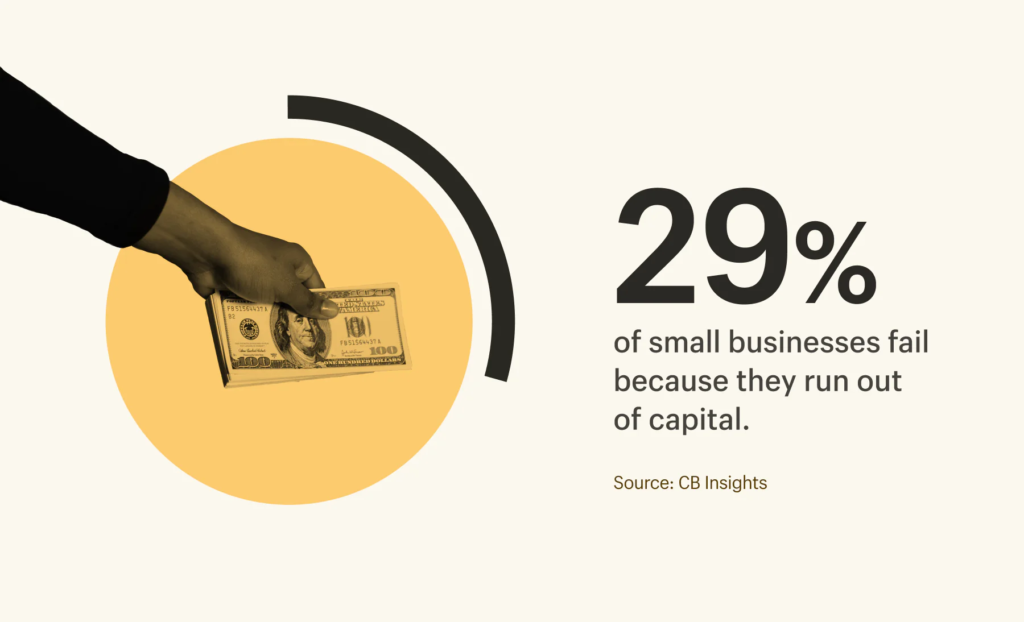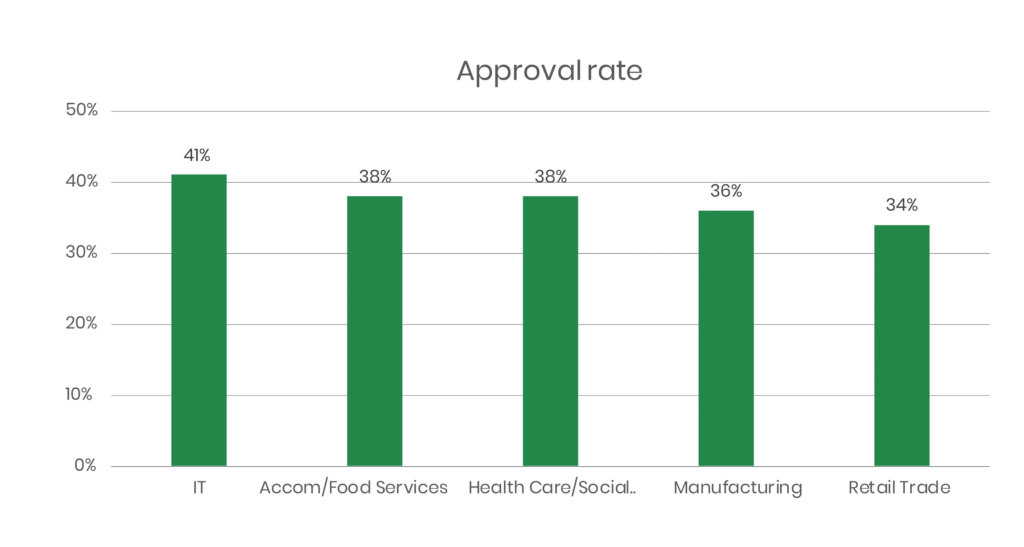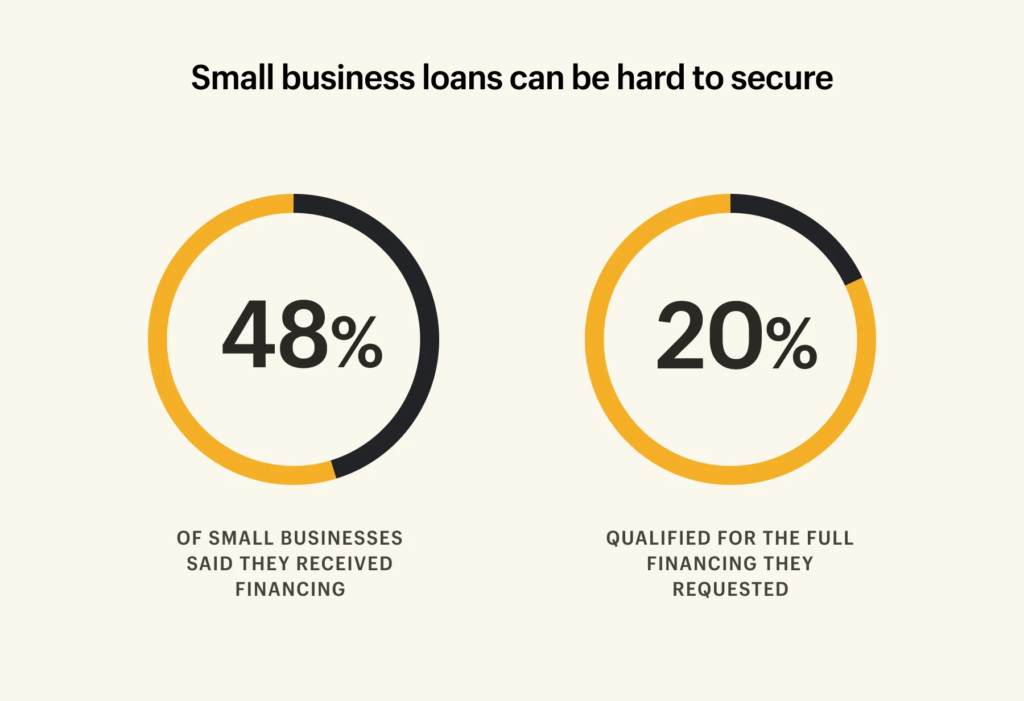In today’s market, securing a business loan or another form of business financing is essential for not just maintaining but also elevating the operations of stores nationwide. This section serves as a cornerstone, offering a comprehensive overview of these retail loans and emphasizing their critical role in supporting and advancing Canadian retail establishments.

Business Loans and the Retail Industry
Business loans are financial instruments tailored to meet the specific capital needs of companies, including Canadian retailers. These retail loans are typically provided by financial institutions and are structured with defined payment conditions, interest rates, and often require a form of collateral. They serve as a critical source of funding for stores, enabling them to meet various financial obligations and pursue growth opportunities. The retail industry is known for its high volatility, occasionally making it more challenging to secure money compared to other industries.

Importance of Business Loans for Canadian Retailers:
The significance of financing for Canadian retailers is multifaceted and crucial for their success and growth. This funding facilitates:
Financial Stability
Retail stores are provided with access to the financial stability required to endure periods of economic uncertainty or unexpected financial challenges. This ensures continuity in operations and the ability to meet ongoing financial obligations and sales.
Expansion and Growth
Funding options for new projects enable retailers to make an investment and expand their operations, open new locations, or diversify their product offerings. This expansion fuels growth and enhances market presence, positioning them for long-term success.
Inventory Management
Stores manage their inventory levels more effectively. This includes purchasing new inventory, managing seasonal fluctuations, and optimizing inventory turnover rates to meet customer demand.
Technology Adoption
Retail loans allow a retailer to make the investment in technology upgrades. Including implementing new point-of-sales systems, enhancing online shopping experiences, and leveraging data analytics for improved decision-making.
Competitive Edge
Business financing empowers Canadian retailers to stay competitive in a rapidly evolving market. This includes an investment into marketing strategies, bettering the customers experience, and staying ahead of trends.
What Types of Business Loans are Available to Retail Stores in Canada?
Small Business Loan
A small business loan is a financial product designed to provide retailers with a lump sum of capital, which must be repaid over a fixed term, typically with interest. These loans are tailored to meet the unique needs of each business. Retailers may use these to finance various operational needs, such as purchasing inventory, expanding the business, hiring employees, or investing in their marketing.
They help improve liquidity, and are flexible based on the specific needs of the retail store, offering a versatile business financing option. In order to borrow money they may require security, such as personal or business assets, which can be risky if the retail store is unable to pay it back. Most lenders charge a higher interest rate when a company has less established credit.
Fixed repayment conditions can pose challenges for a retail business with cash flow instability.
Business Lines of Credit
A business line of credit is a revolving credit facility that provides a retail business with access to a predetermined credit limit. They are common in the retail industry to manage funds, cover short-term expenses due to seasonal changes, or capitalize on business opportunities. Some have higher borrowing rates compared to traditional loans, and are typically subject to review; this means it may be reduced or revoked by the lender.
You borrow the money you need, when you need it, and only pay interest on the amount borrowed, making it a cost-effective financing option for retail financing.
Equipment Financing
It is specifically used to purchase equipment or machinery for retail operations. The equipment serves as security for the lender. It enables retail stores to acquire the necessary equipment to operate or expand their business without having to pay the full cost upfront. It makes for a good solution to help conserve working capital, spreading the cost of equipment over time.
Every type of funding comes with its own set of challenges. While it may help reduce startup costs, this type of retail business loan could result in higher costs in the long run due to interest and fees paid.
Sources of Business Loans for the Retail Business

Canadian Banks
These institutions provide a variety of financial products and services, including loans to businesses. The loans are typically offered at competitive rates and with flexible repayment conditions. The application process involves submitting a loan application, along with supporting documents such as financial statements and business tax returns.
If approved, the bank will disburse the money to the retail store, which must then pay the loan back according to the agreed-upon terms. The application process for a business loan from a bank can be lengthy and requires extensive documentation. Banks may also have strict eligibility criteria, which can make it difficult for a retail store to qualify.
Credit Unions
Credit unions are financial cooperatives owned and operated by their members. Any company interested in obtaining a business loan from a credit union must first become a member of the union, if they are not already. The application process for a loan from a credit union involves meeting with a loan officer to discuss the financing needs of the retail business, their services are more personalized. Unions are also more willing to work with companies that have less established credit histories compared to an alternative lender.
Online Lenders
Online lenders are financial firms that offer loans to retail stores through online platforms. They often provide fast approval processes and access to funds, making them a convenient option, especially for managing working capital. However, online lenders may charge higher interest rates and fees compared to others. Retailers should also be cautious of fraudulent online lenders and ensure they are dealing with a reputable institution.
Merchant Cash Advance
A merchant cash advance (MCA) is a financing option where a business receives a lump sum of money upfront in exchange for a percentage of its daily sales, plus a fee. Unlike a traditional loan, where you pay interest, with an MCA, the repayment is based on a factor rate rather than an interest rate. This means that the total amount paid is determined upfront, allowing for easy budgeting. They’re often used by those that need capital quickly or have fluctuating sales volume, as the repayments are based on a percentage of daily sales. One of the types of retail loans that can provide fast access to funds, they are typically more expensive than traditional loans, so it’s essential to carefully consider the terms before proceeding. If you’re interested in applying for a merchant cash advance, click here for more information.
Applying for Business Loans As a Retail Store…

Last year, well over half (58%) of small companies in Canada needed retail business loans.
Required Documents
- Business plan outlining the retail store’s mission, objectives, and financial projections, including how the loan will be used to support working capital.
- Financial statements (income statements, balance sheets, and cash flow statements) to demonstrate the retail store’s financial health and ability to repay the loan.
- Personal and business tax returns for the past few years to provide a comprehensive financial history.
- Bank statements showing the retail store’s cash flow and financial health, including any existing working capital.
- Legal documents, such as business licenses, permits, and contracts, to verify the legitimacy of the retail store’s operations.
Application Process
The application process for a business loan in Canada typically involves the following steps:
- Researching and comparing lenders to access the best loan options for the retail store.
- Preparing the necessary documents and information required for the application.
- Submitting the loan application to the chosen lender, either online or in person.
- Meeting with a loan officer to discuss the retail store’s financing needs and provide any additional information requested.
- Waiting for the lender to review the application and make a decision regarding the funding.
Approval and Disbursement
Once the loan application has been reviewed, the lender will decide whether to approve or deny the loan. If approved, the lender will disburse the loan money to the retail store. The disbursement process may vary depending on the lender, but funds are typically deposited directly into the retail store’s bank account. Retail stores are then responsible to pay for the loan according to the terms agreed upon with the lender, including making regular monthly payments and to pay any interest and fees associated with the loan.
Factors to Consider When Applying for Retail Business Financing

Credit Score – A retail store credit score plays a significant role in its ability to qualify for a business loan. Creditors use credit history to assess the retail business looking at its financial reliability and determine the interest rate and terms of the loan. Retail store financing with higher credit score generally indicates lower risk to the lender, making it easier to qualify for a loan with favorable terms.
Business Plan – A well-thought-out business proposal is essential when applying for a business loan. The plan should outline the retail store’s goals, target market, competition, marketing strategies, and financial projections. A strong business plan demonstrates to lenders that the retail store has a clear vision and a solid strategy for success.
Cash Flow Analysis – Lenders will also analyze the business’s liquidity to determine its ability to pay the loan. Retail stores should have a positive cash flow and be able to demonstrate that their sales can cover their operating expenses, including loan payments. An analysis helps lenders assess the retail store’s financial health and ability to manage debt.
Collateral – An asset that the retail store pledges to secure the loan. If the store defaults on the loan, the lender can seize the assets to recover its losses. Common types of collateral include real estate, inventory, equipment, or accounts receivable. Having sufficient capital can improve the retail store’s chances of qualifying for a loan and may result in lower interest rates.
Interest Rates and Fees – Retail stores should carefully consider the conditions associated with the loan. Different lenders may offer different rates and fee structures, so it’s important to compare options to find the one that best suits your store. High-interest rates and fees can significantly increase the cost of borrowing and affect the retail store’s ability to pay back the loan.
Repayment Terms – The terms of the loan, including the loan amount, interest rate, repayment schedule, and term length, are crucial factors to consider. Retail stores should choose repayment terms that align with their income and financial goals. Longer terms may result in lower monthly payments but could cost more in interest over the life of the loan. Shorter terms may have higher monthly payments but can save on interest in the long run.
Government Programs and Support for Canadian Retail Stores
The Canadian government offers a line of programs and support initiatives to help retail stores, access capital and resources to start, grow, and succeed. These programs are designed to support entrepreneurship, job creation, and economic development across Canada offering funding to both smaller loans and larger loans.
Canada Small Business Financing Program
The Canada Small Business Financing Program (CSBFP) is a federal government initiative that helps retail stores receive financing by sharing the risk with lenders. Under the CSBFP, the government guarantees a portion of the loan, making it easier for small retailers to qualify for loans from participating financial institutions.
Key features of the CSBFP include loans of up to $1 million for the purchase or improvement of real estate, equipment, or leasehold improvements. A maximum loan term of 10 years for real estate and leasehold improvements, and up to 5 years for equipment. Eligibility requirements include being a for-profit business with gross annual revenues of $10 million or less, and using the loan proceeds for eligible purposes.
Canada Emergency Business Account (CEBA)
The Canada Emergency Business Account (CEBA) is a federal government program that provides interest-free loans to retail stores impacted by COVID-19. The program offers loans of up to $60,000 to help pay for operating costs, such as rent, utilities, and insurance. It makes sense for those who suffer from losses of sales due to seasonal changes.
Eligibility criteria include having an active business operating account, being an eligible business entity, and demonstrating financial hardship as a result of COVID-19.
Other Provincial and Federal Programs
In addition to the CSBFP, there are other government programs available to support the Canadian retail industry. The Canada Emergency Business Account (CEBA), provides interest-free loans to those impacted by COVID-19. Provincial support programs, such as the Ontario Small Business Support Grant or the Quebec Small Business Support Program, which offer business loans for retail stores. A smaller loan may be on option depending on their capital.
Some industry-specific programs, such as the Canada Retail Innovation Challenge, support retail stores in adopting innovative technologies and practices.
Retail stores interested in accessing government programs and support should research available options and contact their local government or business financing povider for more information.
Future Outlook

Looking ahead, the future of business loans for Canadian retail stores appears promising. According to statistics from the Canadian Federation of Independent Business (CFIB), the retail sector is expected to experience steady growth, with an estimated 3.5% increase in sales in 2024. This growth is attributed to the continued economic recovery and increased consumer confidence. Additionally, government initiatives such as the Canada Emergency Business Account (CEBA) have provided critical support to retail businesses during challenging times.
Retailers are well-positioned for growth and innovation, with opportunities to expand their operations and reach new customers. This may require investment in various aspects of the business, but it is essential for them to stay informed about available financing options and adapt to evolving market conditions. According to a survey by the Business Development Bank of Canada (BDC), 78% of smaller businesses in Canada believe that staying informed about financial management is essential for their success. By staying informed and leveraging available financing options, they can position themselves for long-term success in the dynamic Canadian retail market.

What is an example of a retail loan?
An example of a retail loan is a business line of credit specifically tailored for retail businesses. This type of loan provides access to funds that retailers can use to manage inventory, cover operational expenses, or invest in marketing initiatives. Unlike traditional term loans, a business line of credit allows retailers to borrow funds up to a predetermined credit limit, repay them, and borrow again as needed, making it an ideal financing option for managing the cyclical nature of retail operations.
What is a CEBA loan, and is it extended to 2024 in Canada?
The Canada Emergency Business Account (CEBA) is a government program in Canada that provides interest-free loans to the businesses affected by COVID-19. As of the last update, the program has been extended, but specific details may vary. It’s advised to check the latest information on the program’s official website.
How long does it take to get approved for a business loan in Canada?
The time it takes to get approved for a business loan in Canada can vary depending on the lender and the complexity of your application. In general, it can take anywhere from a few days to several weeks to receive approval.
What happens if I default on a business loan in Canada?
If you default on a business loan in Canada, the lender may take legal action to recover the amount owed. This can include seizing collateral, such as business assets or personal guarantees, and may negatively impact your credit score.
Can I use a business loan to purchase inventory in Canada?
Yes, business loans in Canada can be used to pay for inventory. Many lenders offer inventory financing specifically designed to help businesses manage their inventory needs.
Are there any grants available for retail store owners in Canada?
Yes, there are grants available for retail store owners in Canada that can help with various aspects of their business, including working capital. It’s advisable to research government grants and programs specific to your region or industry.
What is the difference between a business loan and a traditional loan?
The main difference between the two lies in their purpose and usage of capital. A traditional finance option typically refers to a loan obtained from a bank or financial institution for personal or business use. It often involves a fixed amount of money borrowed for a specific purpose, such as buying a home or a car, and which you pay back over a set period with interest.
On the other hand, a retail loan is specifically designed for business purposes, such as starting a new business, expanding operations, or managing capital. Business loans can be used for various purposes, including purchasing inventory, hiring staff, or investing in equipment. These loans often have different terms and conditions compared to traditional loans, as they are tailored to meet the needs of businesses.
How can I improve my chances of getting approved for a business loan in Canada?
To increase your likelihood of being approved for a business loan in Canada, consider the following:
1. Maintain a strong credit score: Canadian lenders often look for a credit score of 650 or higher, according to the Financial Consumer Agency of Canada (FCAC).
2. Prepare a detailed business strategy: A well-structured strategy is crucial for lenders. According to the Business Development Bank of Canada, 77% of small businesses that had a business plan when applying for retail loans were successful.
3. Demonstrate steady cash flow and profitability: Lenders want to see that your business is generating enough income ensure the loan is paid. Providing financial statements and projections can help.
4. Provide collateral to secure the loan: While not always necessary, offering collateral can increase your chances of approval, especially for larger loans. According to the FCAC, 43% of Canadian small businesses use personal assets as security for loans.
How do you finance the expansion of a company in Canada?
Financing the expansion of a company can be achieved through various means. One option is to secure a line of credit, which provides access to funds as needed and can be a flexible solution for managing expansion costs. In today’s market, there are a multitude of financing options, such as business loans or equity financing, to support growth. It’s important to assess the available choice and determine the most viable option as each company will have its own set of circumstances with specific needs.
What is the best source of financing for a retailer loan in Canada?
There are many types of retail loans. Inventory financing can be a beneficial source of funding for retail stores, especially those with seasonal or fluctuating inventory needs. It allows businesses to use their inventory as collateral to secure a loan, which can help them manage cash flow and purchase inventory without depleting current assets.
Can you get a loan for eCommerce?
Yes, you can get a loan for eCommerce in Canada, including inventory financing. Many banks and online lenders offer loans specifically designed for eCommerce businesses. They can be used to fund various aspects of an eCommerce business, such as inventory purchases, website development, marketing campaigns, and expansion efforts. They have flexible terms and options catered to the needs of online businesses.
